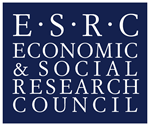Ref. No.: RES-451-26-0439
- Grant: £14,596
- Co-ordinators: Ngai-Ling Sum, Bob Jessop (Lancaster University)
- Thematic co-ordinators: Sara Gonzales (Leeds University), Martin Hess (Manchester University), Bob Jessop (Lancaster University), Paul Langley (Northumbria University), Frank Moulaert (Newcastle University), Andy Pike (Newcastle University), Susan Robertson (Bristol University), Ngai-Ling Sum (Lancaster University)
- Supporting institutions: United Nations Institute for Social Development (UNRISD)
Synopsis
Most academic studies and policy recommendations on ‘economic competitiveness’ arise from economics and management. Some work (e.g., Porter’s competitive Diamond) has moved to ‘knowledge-brand’ status that is eagerly sought for the guru status of its leading advocate(s). Key terms here are ‘entrepreneurship and innovation’, ‘knowledge-based economy’, ‘creative industries’, ‘clusters of innovation’ and ‘security for competitiveness’. They co-exist, in an ambivalent way, with attempts to domesticate competitiveness by linking it to social and/or ethical norms and governance practices (e.g., corporate social responsibility, poverty reduction, green/progressive competitiveness, etc.). This is often said to be the case in continental European contexts, where competitiveness is linked to social cohesion, in alleged contrast to more neo-liberal Anglophone countries. Domesticated or not, these ‘changing cultures of competitiveness’ are central to the conceptual and policy concerns of scholars, policy-makers and social change agents. Hence a seminar series that connects different stakeholders offered timely opportunities not only to clarify, re-examine, and evaluate these various economic and social formulations of competitiveness; but also to rethink policies through observing and debating alternative socially creative schemes.
The series’ main aim was to provide a context for presenting and promoting interdisciplinary analyses of ‘competitiveness’ as a body of knowledge and related policy. Seminars were organised around six themes:
- Theme 1 – Cultures of Competitiveness: Discourses and Knowledge Brands (Lancaster University)
- Theme 2 – Financialization of Competitiveness (Northumbria University)
- Theme 3 – Competitiveness, Global Production and Labour Relations (Manchester University)
- Theme 4 – Changing Cultures of Competitiveness in Education (Bristol University)
- Theme 5 – Changing Cultures of Competitiveness: Social and Environmental Dimensions (Lancaster University)
- Theme 6 – Social Exclusion and Socially-Creative Spaces (Newcastle University, in collaboration with the EU-funded Framework 6 Project, DEMOLOGOS)
For more information, see the website of the series.
